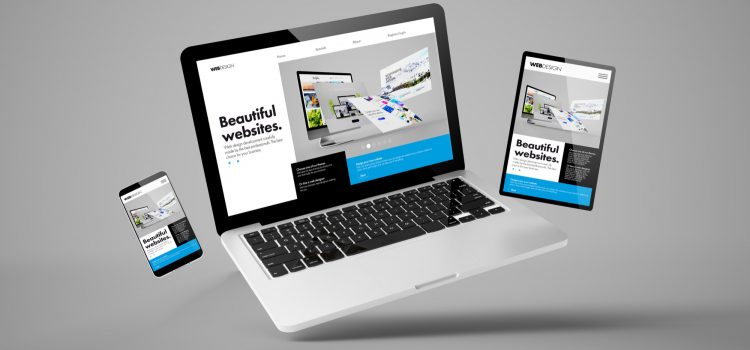










You might want to rely on website builders if you want to pursue a career in website design without any coding experience. These are usually plugins that will allow you to build pages on your website. In this article, I’ll look at the top 4 website builders that produce excellent results.
Table of Contents
ToggleThis was the first website builder I ever used in designing, so I may be a little biased. That notwithstanding, this is probably the best page builder on WordPress, especially for beginners. This plugin allows you to drag and drop sections or divs, headings, paragraphs or text blocks, and so many other options, which would otherwise have taken you hours to code. This website builder is compatible with most themes on Envato and Themeforest. So you wouldn’t have trouble working with the Elementor page builder if you import the demo content from a bought theme. Everything on a page is customisable, and you can add images and videos too. It’s very easy to add cool animations on the entrance and on hover, giving your website a nice touch. The only drawback is that adding custom CSS is a premium feature, which wouldn’t be that valuable to a beginner.
WP Bakery website builder has a steep learning curve compared to Elementor but is great all around. It has both a frontend and backend editor for web designers who prefer either one. The backend editor is pretty comprehensive, with the ability to add various widgets like texts, images, forms, shortcodes and more. The frontend editor gives you a first-hand feel of how the website looks in real time as you add and edit blocks of the web page. Widgets work well, but sometimes the UI can get clunky when you’re navigating through multiple widgets. Another great feature of this website builder is that you can save templates of your work that you can use on another page or the same page. The free version is quite limited, although it has the Custom CSS option missing in Elementor. This website builder as mentioned earlier will take a while to get used to and can be frustrating trying to find certain quick settings, like paddings and margins. This builder is supported by several themes, so integration should not be an issue if you decide to stick with this builder.
I found out about BeBuilder recently, but in my opinion, is one of the best backend editors in the website building industry. The widgets and options are laid out clearly it’s easy to understand as a beginner. As with the other builders on this list, this builder allows you to add all kinds of media to your web pages without hassle. This builder also has the most features in the free version out of the three on this list. You can edit web pages and add widgets by simply dragging and dropping them into desired locations. If you’re coming from Elementor, then you’ll feel right at home. This is because they have similar UI and functionality making it easy for Elementor users to adapt. I’ve had instances where some settings were not implemented when I made them using the frontend editor. This is the case for padding, image sizes and margin settings. Generally, I have not dealt with any other bugs or issues with this website builder.
I went back and forth between Unyson and BeBuilder, but ultimately, Unyson is strictly a backend editor, so BeBuilder takes the nod here. However, Unyson has a neat layout that makes it easy to visualise what your page will look like without having to edit on the front end. One of the perks of this builder is that it has a rich library of icons to work with to improve your website. However, the customisation options are limited compared to the others in this list. This website builder is also robust, and sometimes it’s hard to make the smallest of changes. Overall it’s still a great alternative to the aforementioned builders.
Like WPBakery, Visual Composer is one of the biggest learning curves among all the website builders out there today. It’s a drag-and-drop page builder with sufficient elements and widgets to build a basic page. It has both a backend and frontend editor, giving you the freedom to edit your website as you please. The free version is quite limited though, with all the bells and whistles in the Pro version. The paid version is also expensive compared to other Pro versions of other website builders. It can be sluggish sometimes, though rare, and changes may not reflect until you clear the site cache, which can be frustrating. Overall, this web builder is consistent and gets the job done.
If you’re a beginner in website builders and web designing, then Beaver is a great option for you. The interface is intuitive and clear; it will only take a few minutes to understand how it works. Elements and widgets are laid out cleanly so you know exactly what to do. It’s a frontend editor, so designers can have an idea of how each element is implemented on the page. You can also save your own templates to use them globally throughout the site. For instance, when you build a section for a promotion a business is running, you may want it to be shown on multiple pages. Instead of building from scratch on every page, you can save the first section as a template and implement it on the other pages. The paid plan is some of the most value for money on the market as it allows you to use it on multiple websites.
Divi is another beginner-friendly page builder on this list. It’s a fully drag-and-drop frontend editor and its flexibility allows users to explore different looks of their pages. You can create several complex but responsive pages to make your website stand out. The builder comes with multiple themes that may suit your goal. These themes are fully editable; you can edit texts, images, videos, icons, etc. You can also build a website from scratch if you want to as well. The lifetime access is cheaper compared to other builders, and you can build pages on an unlimited number of websites.
If you have passion for web design but no time to code, no problem. You can watch this tutorial here on how to build an informational site using the Elementor website builder. Learning at least two builders will safeguard you and set you up to be able to handle most themes you might have to work on.
Check out this article: 5 Top Free WordPress Plugins for Every WordPress Website – 2022
| Cookie | Duration | Description |
|---|---|---|
| cookielawinfo-checkbox-analytics | 11 months | This cookie is set by GDPR Cookie Consent plugin. The cookie is used to store the user consent for the cookies in the category "Analytics". |
| cookielawinfo-checkbox-functional | 11 months | The cookie is set by GDPR cookie consent to record the user consent for the cookies in the category "Functional". |
| cookielawinfo-checkbox-necessary | 11 months | This cookie is set by GDPR Cookie Consent plugin. The cookies is used to store the user consent for the cookies in the category "Necessary". |
| cookielawinfo-checkbox-others | 11 months | This cookie is set by GDPR Cookie Consent plugin. The cookie is used to store the user consent for the cookies in the category "Other. |
| cookielawinfo-checkbox-performance | 11 months | This cookie is set by GDPR Cookie Consent plugin. The cookie is used to store the user consent for the cookies in the category "Performance". |
| viewed_cookie_policy | 11 months | The cookie is set by the GDPR Cookie Consent plugin and is used to store whether or not user has consented to the use of cookies. It does not store any personal data. |